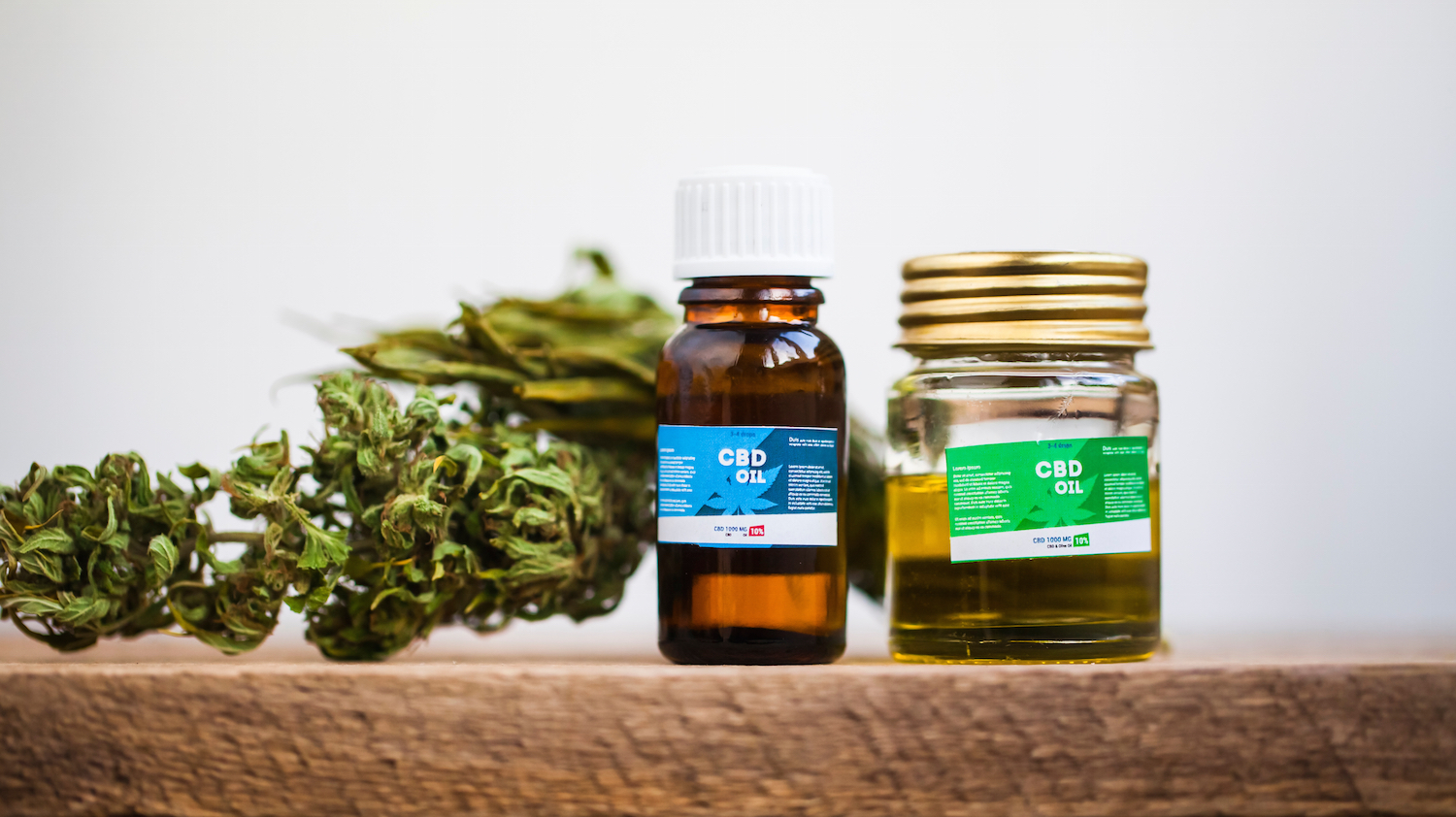THC vs. CBD: Which Marijuana Compound Is More Beneficial?

Get the world’s most fascinating discoveries delivered straight to your inbox.
You are now subscribed
Your newsletter sign-up was successful
Want to add more newsletters?

Delivered Daily
Daily Newsletter
Sign up for the latest discoveries, groundbreaking research and fascinating breakthroughs that impact you and the wider world direct to your inbox.

Once a week
Life's Little Mysteries
Feed your curiosity with an exclusive mystery every week, solved with science and delivered direct to your inbox before it's seen anywhere else.

Once a week
How It Works
Sign up to our free science & technology newsletter for your weekly fix of fascinating articles, quick quizzes, amazing images, and more

Delivered daily
Space.com Newsletter
Breaking space news, the latest updates on rocket launches, skywatching events and more!

Once a month
Watch This Space
Sign up to our monthly entertainment newsletter to keep up with all our coverage of the latest sci-fi and space movies, tv shows, games and books.

Once a week
Night Sky This Week
Discover this week's must-see night sky events, moon phases, and stunning astrophotos. Sign up for our skywatching newsletter and explore the universe with us!
Join the club
Get full access to premium articles, exclusive features and a growing list of member rewards.
The marijuana compound CBD, or cannabinol, is surging in popularity in the wellness community, for its alleged health benefits, without the high normally associated with pot. But a new study suggests that marijuana’s main active ingredient, THC (tetrahydrocannabinol) — the one that gives users a high — may be more responsible for the plant's therapeutic effects.
The researchers looked at data from more than 3,000 people who had tried marijuana to relieve medical symptoms. These participants had all tracked their marijuana use with an app on their smartphones.
The study found that higher THC levels were strongly linked with reported symptom relief. In contrast, levels of CBD were not linked with symptom relief. [25 Odd Facts About Marijuana]
"Despite the conventional wisdom… that only CBD has medical benefits while THC merely makes one high, our results suggest that THC may be more important than CBD in generating therapeutic benefits," study co-author Jacob Miguel Vigil, associate professor in the Department of Psychology at the University of New Mexico (UNM), said in a statement.
The study was published Feb. 25 in the journal Scientific Reports. It was funded by the University of New Mexico Medical Cannabis Research Fund, which takes donations from the public and the cannabis industry. Three of the study authors are employed by MoreBetter Ltd., the company that makes the cannabis tracking app used in the study.
The researchers noted that the study had several limitations — for example, the data was self-reported, and the study lacked a control group that didn't use cannabis. Users may also have experienced a placebo effect, in which they expected certain products (such as those with higher THC, which tend to be more expensive) to work better.
Still, the study is one of the first to examine, in real time, which marijuana properties are linked with reported benefits. Given the increasing popularity of medical cannabis, the researchers call for more studies to better guide patients about the dosage, effectiveness and safety of medical marijuana products.
Get the world’s most fascinating discoveries delivered straight to your inbox.
Cannabis app
Because marijuana is still illegal in the U.S. at the federal level, research on the real-time effects of medical cannabis has been limited.
In the new study, the researchers took advantage of data from the Releaf App, which aims to help people track their marijuana use and learn what types of marijuana products seem to work best for their symptoms. The app asked users for information such as the strain of marijuana and the levels of THC and CBD.
Participants reportedly took marijuana for a range of symptoms, including depression, anxiety, insomnia, stress, fatigue and back pain. The participants reported the severity of their symptoms on a scale of 0 (no symptoms) to 10 (severe symptoms) before using marijuana, and then again within the next 90 minutes after taking the drug.
On average, participants experienced a 3.5 point decrease in symptom severity on the 11-point scale.
Out of all the recorded marijuana characteristics, THC levels were the most strongly tied to reported symptom relief. THC levels were also tied to both negative side effects (such as "dry mouth" and "feeling foggy") and positive side effects (such as feeling "relaxed" and "peaceful"). CBD levels were generally not linked with reported symptom relief or side effects.
The researchers noted that, even though CBD content is reported on marijuana product labels, the labels may not be accurate — with one study finding that CBD content can be inflated on product labels. If that's the case, CBD may not have been linked with symptom relief because the dose was too low to have an effect. It could also be that CBD has more latent effects, and the 90-minute window used in the study wasn't long enough to capture these effects, the researchers said.
CBD hype?
The new study is "very interesting," said Dr. Donald Abrams, an integrative oncologist at the University of California San Francisco's Osher Center for Integrative Medicine, who has studied marijuana and was not involved in the current study.
Abrams noted that, other than studies on CBD for epilepsy in children, there's limited evidence on CBD's effects. "Everybody's espousing CBD for wellness," Abrams told Live Science. "I just think it's gotten a little bit out of proportion to the evidence."
Abrams agreed with the authors about the challenges of studying cannabis-based treatments, particularly given the numerous products that are commercially available. But "using an app like they did here is a good approach to collect sizable amounts of data."
He added that while "this sort of research doesn't provide the strongest evidence… it gives us avenues to pursue further, in perhaps randomized clinical trials," which are considered the gold standard for medical research.
- Mixing the Pot? 7 Ways Marijuana Interacts with Medicines
- 9 Weird Ways You Can Test Positive for Drugs
- 7 Ways Marijuana May Affect the Brain
Originally published on Live Science.

Rachael is a Live Science contributor, and was a former channel editor and senior writer for Live Science between 2010 and 2022. She has a master's degree in journalism from New York University's Science, Health and Environmental Reporting Program. She also holds a B.S. in molecular biology and an M.S. in biology from the University of California, San Diego. Her work has appeared in Scienceline, The Washington Post and Scientific American.
 Live Science Plus
Live Science Plus










